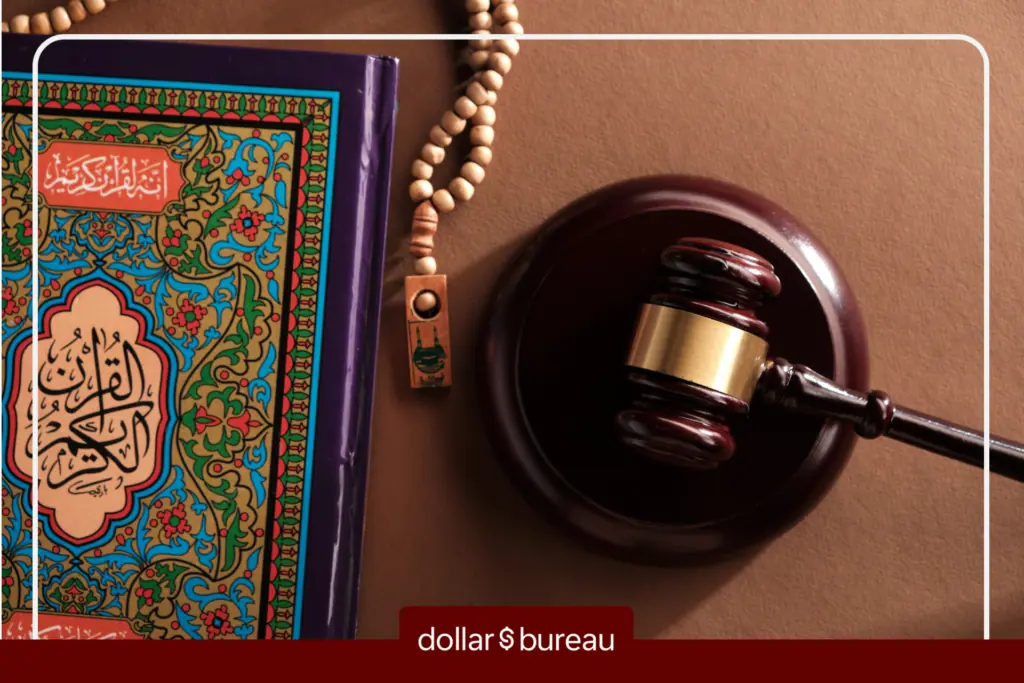Writing a will might not be the most exciting topic, but it’s essential, especially for Muslims in Singapore.
Ensuring your estate is handled according to Islamic principles can save your loved ones from future disputes and headaches.
As someone who has taken time to learn a little more about estate planning and Faraid, I’m here to share with you what I’ve learnt in a way that’s easy to understand and relatable.
In this post, you’ll learn:
- What Muslim intestacy law is in Singapore
- The ins and outs of Faraid
- What properties fall under Faraid and which don’t
- How assets are divided according to Faraid
- The limitations of a Muslim will due to Faraid
Did you know that without a will, your estate might not be distributed as you wish?
Let’s dive in to ensure your legacy is protected.
Keep reading to uncover everything you need to know about Muslim wills and intestacy laws in Singapore.
What is Muslim intestacy law in Singapore?
Muslim intestacy law in Singapore is a specific legal framework that governs the distribution of a deceased Muslim’s estate when they pass away without a will.
Unlike civil intestacy laws, which apply to non-Muslims, Muslim intestacy is guided by principles derived from Islamic law, specifically the Syariah.
This ensures that the estate is distributed in accordance with religious doctrines.
The primary legislation that governs this process is the Administration of Muslim Law Act (AMLA).
Enacted in 1966, AMLA serves as the cornerstone for the administration of Muslim affairs in Singapore.
This comprehensive piece of legislation outlines the rules for the distribution of a deceased Muslim’s estate, ensuring that the process adheres to the principles of Faraid, which is the Islamic law of inheritance.
Under AMLA, the Majlis Ugama Islam Singapura (MUIS) plays a crucial role in overseeing the administration of Muslim estates.
MUIS ensures that the distribution of the estate follows the correct legal and religious guidelines.
One of the key functions of MUIS is to issue the Inheritance Certificate, also known as the Sijil Faraid, which specifies the rightful heirs and their respective shares according to Faraid.
What is Faraid?
Faraid is an Islamic law on inheritance that dictates how a deceased Muslim’s assets are to be distributed among their heirs.
Rooted in the teachings of the Quran and Hadith, Faraid provides a clear and structured framework ensuring that the distribution of wealth adheres to religious principles.
The purpose of Faraid is to ensure fairness and justice, reflecting the values of Islamic law by providing specific shares to various family members.
When a Muslim passes away without a will, the distribution of their estate is governed by Faraid, which takes precedence over any civil laws.
The system is detailed and prescriptive, specifying exact portions of the estate that each heir is entitled to receive.
These shares are determined by the relationship of each heir to the deceased.
For instance, sons typically receive a portion that is double that of daughters, reflecting the traditional Islamic view of financial responsibilities within the family.
Under Faraid, the primary heirs include the surviving spouse, parents, and children.
In the absence of these primary heirs, the inheritance can extend to other relatives such as siblings, grandparents, and uncles or aunts.
The specific shares each heir receives are clearly outlined.
For example, a husband is entitled to one-quarter of his deceased wife’s estate if she leaves behind children, and one-half if she does not.
Conversely, a wife receives one-eighth of her husband’s estate if he leaves children, and one-quarter if he does not.
One of the critical aspects of Faraid is that it aims to prevent disputes and ensure an orderly distribution of assets.
By prescribing fixed shares, Faraid eliminates ambiguity and reduces the potential for conflict among heirs.
However, this rigidity can sometimes lead to complex situations, particularly in cases where the deceased’s assets are not easily divisible or when modern financial instruments are involved.
It’s important to note that not all assets are subject to Faraid.
Items such as CPF savings, insurance policies, and jointly owned properties may be excluded from Faraid distribution, depending on the specific terms and conditions of those assets.
This can sometimes create a need for additional legal or religious guidance to ensure that the distribution is both lawful and in keeping with Islamic principles.
In Singapore, the implementation of Faraid is overseen by the Syariah Court and the Majlis Ugama Islam Singapura (MUIS).
These institutions play a crucial role in issuing Inheritance Certificates (Sijil Faraid) and resolving any disputes that arise during the distribution process.
Their involvement ensures that the principles of Faraid are upheld, providing a structured and equitable approach to inheritance for the Muslim community.
What Properties Do Not Fall Under Faraid?
While Faraid governs the distribution of a deceased Muslim’s estate in Singapore, certain types of properties are excluded from this Islamic inheritance law.
Understanding these exclusions is crucial for accurate estate planning and compliance with both religious and civil laws.
1. Property Registered Under the Land Titles Act Held in Joint-Tenancy Ownership
Properties held in joint tenancy do not fall under Faraid.
In such cases, the right of survivorship applies, meaning the property automatically passes to the surviving joint tenant(s) without being subject to Faraid distribution.
This is based on the latest Fatwa by MUIS.
2. Money from the Deceased’s CPF Account That Has Been Nominated
The Central Provident Fund (CPF) savings that have been specifically nominated by the deceased are also excluded from Faraid.
These nominated funds are directly transferred to the designated beneficiaries according to the CPF nomination scheme, bypassing the Faraid distribution process.
3. Payouts to Nominees on Life Insurance Policies
Life insurance payouts that are designated to specific nominees are not subject to Faraid.
These payouts are made directly to the named beneficiaries, as per the terms of the insurance policy, and are not included in the estate distributed under Faraid – highlighting the importance of making a nomination for your insurance policies.
In addition to these exclusions, several deductions are made from the estate before its distribution under Faraid
These deductions ensure that the deceased’s obligations and other commitments are fulfilled:
Gifts (Hibah) Made While the Deceased Was Still Alive: Any gifts given by the deceased during their lifetime are not considered part of the estate and are excluded from Faraid distribution.
Jointly Acquired (Matrimonial) Property (Harta Sepencarian) if the Deceased Was Malay: For Malay Muslims, jointly acquired matrimonial property, known as harta sepencarian, may be excluded from Faraid.
This type of property is typically divided between the surviving spouse and the estate according to specific rules and agreements.
Vows (Nasr or Nazar) Made to Allah: Any vows or promises made to Allah that entail financial commitments must be fulfilled before the estate is distributed. This ensures that the deceased’s religious obligations are honoured.
Funeral and Other Expenses Relating to the Death of the Deceased: All expenses related to the funeral and other necessary costs arising from the deceased’s death are deducted from the estate before distribution under Faraid.
Debt to Allah: This includes any outstanding religious dues such as unpaid zakat (alms) or other religious financial obligations that the deceased owed.
Debt Owed to Individuals: All personal debts owed by the deceased to individuals must be settled prior to the distribution of the estate. This ensures that the deceased’s financial obligations to others are met in full.
By understanding these exclusions and deductions, you can ensure that the distribution of a deceased Muslim’s estate in Singapore is handled correctly, respecting both religious principles and legal requirements.
This knowledge is essential for effective estate planning and avoiding potential disputes among heirs.
What Properties Fall under Faraid?
Faraid is the Islamic law of inheritance that governs the distribution of a deceased Muslim’s estate.
In Singapore, this law ensures that the deceased’s assets are allocated according to the principles outlined in the Quran and Hadith.
Here are the types of properties that typically fall under Faraid:
Real Estate
Any real property solely owned by the deceased, such as houses, land, or apartments, falls under Faraid.
These properties are distributed among the heirs according to the specific shares prescribed by Islamic law.
Personal Belongings
Personal items such as jewellery, clothing, electronics, and other tangible assets owned by the deceased are included in the estate subject to Faraid distribution.
Bank Accounts
Funds in the deceased’s individual bank accounts are part of the estate.
This includes savings accounts, checking accounts, and any other personal bank deposits.
Investments
Investment assets such as stocks, bonds, mutual funds, and other financial instruments owned solely by the deceased are distributed under Faraid.
These investments are considered part of the deceased’s wealth and are allocated to the heirs.
Business Ownership
Any sole proprietorship or the deceased’s share in a business partnership is included in the estate.
The value of the business or the deceased’s share in it is subject to distribution among the heirs.
Vehicles
Cars, motorcycles, and other vehicles registered in the deceased’s name fall under Faraid.
These assets are part of the estate and are distributed according to Islamic inheritance rules.
Household Items
Furniture, appliances, and other household goods owned by the deceased are included in the estate for distribution.
These items are divided among the heirs as part of the overall wealth.
Cash
Any cash the deceased had at the time of death, including money kept at home or in personal safes, is included in the estate.
Precious Metals and Collectibles
Gold, silver, and other precious metals, as well as valuable collectables like art or rare items owned by the deceased, are part of the estate under Faraid.
Debts Owed to the Deceased
Any outstanding debts owed to the deceased by others are considered part of the estate.
These debts, once collected, become part of the distributable assets.
It is important to note that the distribution of these properties is guided by the specific shares set out in Faraid.
Division of Assets under Faraid
Under Faraid, the division of assets typically includes the blood relatives of the deceased and their spouse.
This Islamic law of inheritance provides a structured and predetermined method for distributing the estate, ensuring fairness and compliance with religious principles.
Here’s a general guideline on how assets are usually divided:
| Male Beneficiaries | Inheritance Details |
| Son | Receives a share that is twice that of a daughter. If the deceased leaves behind sons and daughters, each son receives twice as much as each daughter. |
| Father | Entitled to a fixed share of one-sixth of the estate if the deceased leaves behind children. |
| Grandfather (father’s father) | In the absence of the father, the grandfather takes the place of the father and receives his share. |
| Husband | Receives half of the estate if there are no children. If there are children, he receives one-quarter. |
| Brother | Can inherit if there are no direct descendants or ascendants. |
| Uncle (father’s brother) | Inherits in the absence of closer male relatives. |
| Son’s Son | Inherits in the absence of direct sons. |
| Consanguine Nephew | The son of a consanguine brother (half-brother from the father’s side) can inherit if there are no direct male descendants. |
| Uncle (father’s consanguine brother) | Can inherit in the absence of direct uncles. |
| Male Cousin | Inherits in the absence of closer male relatives. |
| Consanguine Brother | A half-brother from the father’s side can inherit in the absence of full brothers. |
| Consanguine Male Cousin | Inherits if there are no closer consanguine male relatives. |
| Uterine Brother | A half-brother from the mother’s side can inherit a share if there are no full brothers. |
| Nephew (Brother’s Son) | Inherits in the absence of the brother. |
And for females:
| Female Beneficiaries | Inheritance Details |
| Daughter | Receives half the share of a son. If there are no sons, a single daughter inherits half of the estate, while two or more daughters collectively receive two-thirds. |
| Mother | Entitled to one-sixth of the estate if the deceased leaves behind children. If there are no children, the mother receives one-third. |
| Mother’s Mother | Inherits in the absence of the mother. |
| Father’s Mother | Can inherit if the mother is not alive. |
| Sister | Can inherit in the absence of brothers and direct male descendants. |
| Consanguine Sister | A half-sister from the father’s side inherits if there are no full sisters. |
| Son’s Daughter | Inherits in the absence of direct daughters. |
| Uterine Sister | A half-sister from the mother’s side can inherit a share if there are no full sisters. |
| Wife | Receives one-quarter of the estate if there are no children. If there are children, she receives one-eighth. |
The shares specified above are fixed and outlined in Islamic law, ensuring that each beneficiary receives a defined portion of the estate.
This structured division helps to prevent disputes and ensures that the distribution is in line with religious teachings.
In addition to these fixed shares, any remaining estate (residual estate) after the fixed shares have been distributed is allocated among the heirs proportionately.
If There is Faraid, do Muslims Need a Will?
Writing a will is crucial for Muslims, as it ensures that their wishes are respected and their estate is distributed in accordance with Islamic principles and personal preferences.
Here are some compelling reasons why Muslims need a will:
Ensuring Shariah Compliance
A will allows Muslims to ensure that their estate is distributed according to Shariah law.
While Faraid outlines the fixed shares for heirs, a will can help clarify the distribution process and ensure that all religious obligations are met.
This includes the fulfilment of debts, execution of any vows (nazar), and ensuring that any specific wishes within the bounds of Islamic law are respected.
Protecting Minor Children
For parents, a will is essential to safeguard the future of their minor children.
By specifying guardians for their children, Muslims can ensure that their children are cared for by trusted individuals who share their values and beliefs.
This helps in providing stability and security for the children’s upbringing, education, and overall welfare.
Providing for Non-Traditional Heirs
Faraid primarily benefits blood relatives, but Muslims may have other individuals they wish to provide for, such as adopted children, stepchildren, or close friends.
A will allows for the allocation of a portion of the estate to these non-traditional heirs, ensuring that they are also cared for, while still adhering to the principles of Faraid for the main portion of the estate.
Avoiding Family Disputes
Family disputes over inheritance can cause lasting rifts and tensions.
A clear and well-drafted will helps to minimise misunderstandings and conflicts among family members by explicitly stating the deceased’s wishes.
This clarity can prevent disputes and ensure a smoother, more harmonious distribution process.
Managing Charitable Giving
Charitable giving, or sadaqah, is a significant aspect of Islamic life.
Through a will, Muslims can designate a portion of their estate for charitable purposes, supporting causes and organisations that reflect their values and commitments.
This ensures that their legacy continues to contribute positively to the community even after their passing.
Protecting Business Interests
For Muslims who own businesses, a will is vital in ensuring the continuity and proper management of their business interests.
By specifying how the business should be managed or distributed among heirs, they can prevent disruptions and ensure that the business remains in capable hands.
This can be particularly important for family-owned businesses, where maintaining control within the family may be a priority.
However, there are limitations in a Muslim will due to Faraid
A Muslim will, while an essential tool for estate planning, is subject to certain limitations due to the principles of Faraid, the Islamic law of inheritance.
These limitations ensure that the distribution of the estate remains in accordance with Shariah law.
Here are the key limitations imposed by Faraid on a Muslim will:
Fixed Shares for Heirs
Under Faraid, specific shares of the estate are allocated to certain heirs, such as sons, daughters, spouses, parents, and other close relatives.
These shares are fixed and mandatory, leaving limited flexibility for the testator (the person making the will) to distribute their estate differently.
For example, a son typically receives twice the share of a daughter, and this ratio cannot be altered by the will.
Restriction on Bequests
According to Islamic law, a Muslim can only bequeath up to one-third of their estate to non-heirs or for purposes outside the fixed shares of Faraid.
This means that the testator can only allocate a maximum of one-third of their estate to friends, charitable organisations, or distant relatives who are not entitled to a share under Faraid.
The remaining two-thirds must be distributed according to the fixed shares mandated by Faraid.
This is to ensure fair distribution among legal heirs, protect their rights, and adhere to religious obligations. This balance prevents favouritism and ensures financial security for immediate family members.
Conditional Validity of Bequests
Bequests made in a Muslim will are subject to the consent of the primary heirs.
If the bequests exceed one-third of the estate, or if they affect the fixed shares of the primary heirs, the consent of these heirs is required for the bequests to be valid.
Without their consent, the will may be contested and the disputed portions could be invalidated.
Inability to Disinherit Heirs
A Muslim will cannot be used to disinherit any of the mandatory heirs specified under Faraid.
Regardless of the testator’s personal wishes or relationships, the fixed shares must be adhered to, and all designated heirs are entitled to their respective portions of the estate.
This ensures that all rightful heirs receive their due inheritance as prescribed by Islamic law.
Mandatory Settlements Before Distribution
Before the estate can be distributed according to the will and Faraid, certain obligations must be settled.
These include the payment of any debts owed by the deceased, funeral expenses, and the fulfilment of any vows (nazar) made to Allah.
These obligations take precedence over any bequests and the distribution of shares, further limiting the flexibility of the will.
Jointly Held Properties and Non-Faraid Assets
Certain assets, such as jointly held properties, CPF savings with specific nominations, and life insurance payouts designated to particular beneficiaries, are not subject to Faraid.
These assets are excluded from the estate and cannot be redistributed through a will, limiting the scope of what can be addressed in the will.
But that doesn’t meant that there aren’t advantages of having a Will as a Muslim…
| With Will | Without Will |
| Can Will Away 1/3 of your Stuff | Giving only to your family |
You can give to people not your ‘heirs’ such as:
|
|
Your Choice of Executor
|
No Choice of Administrator
|
| General faster, cheaper, and easier probate process | Generally slower, more expensive, and more laborious administration process. |
What Makes a Muslim Will Valid?
To ensure a Muslim will is valid and legally binding, it must meet specific requirements – kinda similar to writing a will as a non-Muslim – but taking into consideration both Islamic principles and the legal framework of Singapore.
A valid Muslim will in Singapore must meet the following criteria:
- Age Requirement: The testator must be at least 21 years old to ensure they are legally capable of making informed decisions regarding their estate.
- Written Form: The will must be in writing, as oral wills are generally not recognised unless in exceptional circumstances.
- Witnessing and Signing: The will must be signed by the testator in the presence of at least two adult witnesses who are not beneficiaries or spouses of beneficiaries, to avoid conflicts of interest.
- Compliance with Shariah Principles: The will must adhere to Islamic inheritance laws (Faraid), allowing up to one-third of the estate to be bequeathed to non-heirs or for charitable purposes, while the remaining two-thirds must follow Faraid distribution. Debts and obligations must be settled first.
- Clear Identification: The will must clearly identify beneficiaries and their entitlements, and appoint an executor to manage the estate.
- Mental Capacity and Free Will: The testator must be of sound mind and make the will voluntarily, without coercion.
- Legal Formalities: While not mandatory, registering the will with a legal authority can add legitimacy and prevent disputes.
Adhering to these requirements ensures the will is valid and enforceable, respecting both Islamic principles and Singaporean legal standards.
Frequently asked questions about Muslim Intestacy Laws in Singapore
Can you ignore Faraid?
Ignoring Faraid is not an option for Muslims when it comes to inheritance.
Faraid, the Islamic law of inheritance, dictates the fixed shares for heirs, ensuring fair and just distribution according to religious principles.
While a will can allocate up to one-third of the estate to non-Faraid beneficiaries, the remaining two-thirds must be distributed as prescribed by Faraid.
Ignoring these rules would go against Islamic teachings and legal requirements in Singapore.
Who is entitled to the Deceased’s Estate if he or she dies with no faraid beneficiaries?
If a deceased Muslim has no Faraid beneficiaries, the estate is typically distributed to the nearest relatives in accordance with Islamic law.
If there are no eligible blood relatives, the estate may go to the Baitulmal (the Islamic treasury).
The Baitulmal is responsible for managing the estate for the benefit of the Muslim community.
This ensures that the estate is still used in a manner consistent with Islamic principles, even when no direct heirs are available.
What if there is no Will?
If there is no will, the estate of a deceased Muslim will be distributed according to Faraid, the Islamic law of inheritance.
If the deceased has no Faraid beneficiaries, the estate may be managed by the Baitulmal for the benefit of the Muslim community.
Without a will, there is limited flexibility in distributing the estate according to personal wishes.
Conclusion
In summary, understanding Muslim intestacy law and the importance of a will is crucial for ensuring that your estate is distributed according to Islamic principles.
We’ve covered the basics of Faraid, the types of properties that fall under it, and those that don’t.
We also discussed the division of assets under Faraid and highlighted the limitations and requirements for a valid Muslim will.
It’s essential to ensure your will is in compliance with both religious and legal guidelines to provide for your loved ones and avoid potential disputes.
If you’re feeling overwhelmed or have specific questions, don’t worry.
We’re here to help!
Reach out to one of our trusted financial advisor partners for free advice tailored to your unique situation.
They can guide you through the process and ensure everything is in order.










